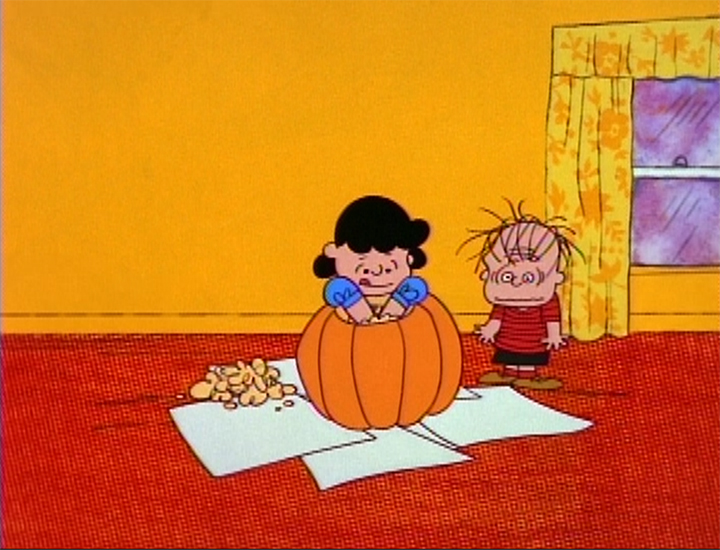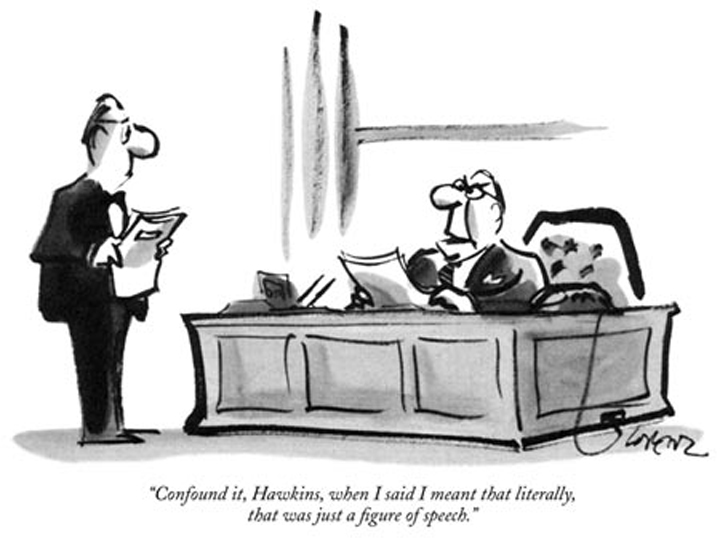The Oatmeal is a web comic that, a couple of years ago, did a piece called "How To Suck at Your Religion." It bugs me. It may seem late to be bringing it up now, but it still pops up in my Facebook feed and other places and -- according to his website -- is one of The Oatmeal's most popular comics, so I need to handle it.
Just so you know, I'm mostly indifferent about The Oatmeal in general. I'm annoyed more by its fans than it itself, since they gush about it a bit more than it deserves. I admit that it deserves something, since it's mostly okay and sometimes even funny or clever. However, even the harmless comics he does -- like ones about grammar (correct use of the word literally or how to use a semicolon) -- seem to only make those laugh who already know these things. I doubt that it actually educates those who don't.
This "How To Suck at Your Religion" comic is similar. It seems to be written to make atheists (or perhaps liberal believers) laugh and share it on their social media walls. It's (probably) not going to teach anyone to not suck at their religion.
There have been a handful of Christian rebuttals written about this comic. These rebuttals contain a mix of valid points (some of which are probably mirrored by me) and they also have stupid points that rise as a result of their religious beliefs (sorry, guys). So one reason I'm writing this is because I haven't seen too many rebuttals from atheists.
Also, mine is incredibly long, and things that take a long time to read is what internet users crave the most.
Monday, December 8, 2014
"How To Suck At Your Religion": A Lengthy Rebuttal
Labels:
Christianity,
comics,
delusion,
happiness,
Islam,
judgement,
Mormonism,
parents,
politics,
sex,
The Oatmeal,
too long didn't read
Tuesday, November 4, 2014
The Great Pumpkin
A Charlie Brown Christmas had Linus reading from the nativity story in order to combat the commercialism of the Christmas holiday. Charles M. Schulz's Christianity was right there on millions of television screens, a quiet and holy and beautiful answer to Charlie Brown's (our our) holiday depression. It was and is a wonderful thing.
But anyone who has read Schulz's comics knows that he can be satirical and even brutal about religion, especially his own. (I highly recommend his comics created for the Christian magazine Youth, a criticism of religion from within its own walls.) The most famous example of this satire is his use of the Great Pumpkin, a holiday deity only believed in by Linus.
One day I'd like to write about every appearance of the Great Pumpkin in the entire run of the comics, but for now the TV special It's the Great Pumpkin, Charlie Brown will do.
At the beginning of the special, Linus demonstrates his belief in animism when he is horrified that Lucy has stabbed a pumpkin to death and removed its guts in order to make a jack-o-lantern. ("You didn't tell me you were gonna kill it!") Linus's horror is further explained when we later find out about his belief in the Great Pumpkin, Lucy's now-dead pumpkin being -- presumably -- one of its earthly avatars.

Linus, of course, is already at this point in Peanuts history (this is 1966) known by fans as the religious scholar among the Peanuts characters. His knowledge of the Bible, his overall intelligence, and his generally kind nature makes him one of the more positive characters. But he also clings to a security blanket and sucks his thumb. And, it turns out, he is clueless enough to have somehow conflated Halloween and Christmas, pumpkins and Santa Claus.
But anyone who has read Schulz's comics knows that he can be satirical and even brutal about religion, especially his own. (I highly recommend his comics created for the Christian magazine Youth, a criticism of religion from within its own walls.) The most famous example of this satire is his use of the Great Pumpkin, a holiday deity only believed in by Linus.
One day I'd like to write about every appearance of the Great Pumpkin in the entire run of the comics, but for now the TV special It's the Great Pumpkin, Charlie Brown will do.
At the beginning of the special, Linus demonstrates his belief in animism when he is horrified that Lucy has stabbed a pumpkin to death and removed its guts in order to make a jack-o-lantern. ("You didn't tell me you were gonna kill it!") Linus's horror is further explained when we later find out about his belief in the Great Pumpkin, Lucy's now-dead pumpkin being -- presumably -- one of its earthly avatars.

Linus, of course, is already at this point in Peanuts history (this is 1966) known by fans as the religious scholar among the Peanuts characters. His knowledge of the Bible, his overall intelligence, and his generally kind nature makes him one of the more positive characters. But he also clings to a security blanket and sucks his thumb. And, it turns out, he is clueless enough to have somehow conflated Halloween and Christmas, pumpkins and Santa Claus.
Labels:
atheism,
belief,
Charles M. Schulz,
Christmas,
Halloween,
Peanuts,
Santa Claus,
television,
The Great Pumpkin
Sunday, August 3, 2014
Literally!
 We've all heard the question of whether or not the Bible should be taken "literally." The answer seems to be "yes" if you are (a) a fundamentalist who believes everything the Bible says no matter what reality it clashes with or (b) an atheist.
We've all heard the question of whether or not the Bible should be taken "literally." The answer seems to be "yes" if you are (a) a fundamentalist who believes everything the Bible says no matter what reality it clashes with or (b) an atheist.The group that wants to say "no" or "not always" are the more moderate believers of the Bible (or liberal believers or mainstream believers or whatever label you prefer), those who recognize that the Bible often says things that do not jive with reality and therefore must be metaphorical in nature. In fact, some of these moderate believers -- because fundamentalist and atheists both tend to read the Bible literally -- declare that atheists are "no better than" fundamentalists for failing to understand the nuances of this special book.
What fundamentalists and atheists have in common is the attempt to honestly face the reality of their world, but the reality of an atheist is the actual world, while the reality of a fundamentalist is what is written in an old book.
So atheists can recognize that the universe is billions of years old, for example: a fact that is proven in the real world with overwhelming evidence. Atheists can then read the literal words of the Bible -- which says that the earth and everything on it was created by a god in six days -- and know that this book is an artifact from a pre-scientific age when then-unanswerable questions were addressed with supernatural stories--which no one faults the ancient writers for writing.
Fundamentalists read in the Bible that the earth was created in six days and believe it, on "faith." When confronted with the fact that this simply isn't true by people who observe the real world, fundamentalists defer to their "reality" (the Bible) and deny that the actual reality exists.
You can, I hope, see the difference between these two camps.
Labels:
Adam and Eve,
Aesop,
atheism,
Bible,
creation,
fable,
fundamentalism,
Genesis,
Gilgamesh,
Heaven,
Hell,
literalism,
metaphor,
moderate Christianity,
moon,
myth,
Noah,
Santa Claus,
too long didn't read,
Utnapishtim
Wednesday, July 23, 2014
Chapter 12
What if the Bible, instead of starting with the first eleven chapters of Genesis, started with Chapter 12?
This isn't as unusual of a question as it might seem. The first eleven chapters are almost purely "mythological," while the rest of Genesis is "historical." This means that the first eleven are interesting to humanity in a universal way, while the rest of the book (and most of the rest of the "Old Testament") simply isn't. Beginning the book with Chapter 12 would start the book more properly, without misleading us into thinking it's about something that it isn't, and it would help eliminate many of the needless "controversies" surrounding education, science, and the way we think about and live our lives.
As a reminder of what occurs in the first eleven chapters, Genesis 1 gives us the famous six day creation story. Chapters 2-3 gives us an almost completely different creation story involving Adam, Eve, the serpent, and the forbidden fruit. Chapter 4 is Cain killing Abel and other murder stories. Chapter 5 (not mythological) is the lineage of Adam to Noah and his sons. Chapters 6-9 is Noah's ark and the re-boot of humanity after the flood. Chapter 10 (also not mythological) is the lineage of Noah's sons. Chapter 11 is the Tower of Babel and the scattering of people and languages, with some additional non-mythological lineage thrown in at the end of the chapter.
These scant chapters of Genesis (only 8 1/2 if you take out the lineages) are some of the main things we remember and care about when we think of not only this first book but of the entire Bible. In these chapters, we learn where the world and humanity come from (two versions: take your pick, or force-merge if you like), where sin and evil and death come from, the notion that the planet -- at one point in its history -- became so wicked that it had to be destroyed by water and begun anew, where rainbows come from, where language comes from, where races come from, and more.
Unfortunately, the book of Genesis -- in a rush to get to what it really wants to talk about (which I'll explain soon) -- rushes through all of these large ideas haphazardly, confusingly, wrongly, ignorantly, immorally, and every other negative "ly" you wish you add. So now we live with the God-given "facts" that the universe (which apparently only reaches to the visible sky) takes a week to make and is only a few thousand years old, evil and death come from a magic fruit that we ate, "sin" is something we're born with and inherit, women come from a man's rib, man is the ruler of woman and animals, a sampling of every species in the world once fit on a boat and were saved from a world flood, different languages are punishment for humanity working together to make a great city and building, and so on.
We're stuck with these idiotic ideas, even after the Age of Enlightenment, even after Darwin, even after we landed on the moon, even in the 21st century where the Bible is proven false while science fiction novels become truer every year. If these unnecessary eleven chapters were gone, we may not have some of these stupid problems and misguided notions--or at least not to such a degree.
This isn't as unusual of a question as it might seem. The first eleven chapters are almost purely "mythological," while the rest of Genesis is "historical." This means that the first eleven are interesting to humanity in a universal way, while the rest of the book (and most of the rest of the "Old Testament") simply isn't. Beginning the book with Chapter 12 would start the book more properly, without misleading us into thinking it's about something that it isn't, and it would help eliminate many of the needless "controversies" surrounding education, science, and the way we think about and live our lives.
As a reminder of what occurs in the first eleven chapters, Genesis 1 gives us the famous six day creation story. Chapters 2-3 gives us an almost completely different creation story involving Adam, Eve, the serpent, and the forbidden fruit. Chapter 4 is Cain killing Abel and other murder stories. Chapter 5 (not mythological) is the lineage of Adam to Noah and his sons. Chapters 6-9 is Noah's ark and the re-boot of humanity after the flood. Chapter 10 (also not mythological) is the lineage of Noah's sons. Chapter 11 is the Tower of Babel and the scattering of people and languages, with some additional non-mythological lineage thrown in at the end of the chapter.
These scant chapters of Genesis (only 8 1/2 if you take out the lineages) are some of the main things we remember and care about when we think of not only this first book but of the entire Bible. In these chapters, we learn where the world and humanity come from (two versions: take your pick, or force-merge if you like), where sin and evil and death come from, the notion that the planet -- at one point in its history -- became so wicked that it had to be destroyed by water and begun anew, where rainbows come from, where language comes from, where races come from, and more.
Unfortunately, the book of Genesis -- in a rush to get to what it really wants to talk about (which I'll explain soon) -- rushes through all of these large ideas haphazardly, confusingly, wrongly, ignorantly, immorally, and every other negative "ly" you wish you add. So now we live with the God-given "facts" that the universe (which apparently only reaches to the visible sky) takes a week to make and is only a few thousand years old, evil and death come from a magic fruit that we ate, "sin" is something we're born with and inherit, women come from a man's rib, man is the ruler of woman and animals, a sampling of every species in the world once fit on a boat and were saved from a world flood, different languages are punishment for humanity working together to make a great city and building, and so on.
We're stuck with these idiotic ideas, even after the Age of Enlightenment, even after Darwin, even after we landed on the moon, even in the 21st century where the Bible is proven false while science fiction novels become truer every year. If these unnecessary eleven chapters were gone, we may not have some of these stupid problems and misguided notions--or at least not to such a degree.
Labels:
Abraham,
Bible,
Genesis,
materialism,
New Testament,
Old Testament
Saturday, February 22, 2014
I Chose To Be Gay Just Last Week
 I'm more surprised than anyone about this recent turn of events. Up until last week, I was a heterosexual man. Then I chose to be a homosexual one afternoon. It was much easier than I thought.
I'm more surprised than anyone about this recent turn of events. Up until last week, I was a heterosexual man. Then I chose to be a homosexual one afternoon. It was much easier than I thought.Let me start from the beginning.
It was in Kindergarten that I first remember finding a girl aesthetically pleasing. I'd already heard about girls and how I, as a boy, was supposed to like them, but I was too young to really think about it. But then this girl named Michelle was just standing there in class, and I looked at her, and I thought to myself, "Wow, she's really pretty. Wow, I guess I like girls. Wow, I guess I get what everyone's been talking about." I didn't even need to do anything about it right then: it was enough to know she was pretty and that I could look at her.
Later, of course, as early as second grade and certainly by fourth grade, I had painful crushes on girls. I would think about them, desire them. Maybe I wanted to kiss them or hold their hands, but mostly I wanted them to be my girlfriends.
These feelings got even stronger as I got older and, in seventh grade, I had my first real girlfriend. What a spectacular experience. I still remember how neatly everything worked: I liked a girl, she liked me, and we got to be together and to be called ("officially") a couple, with all the privileges afforded couples--holding hands and kissing in public, going to dances together, trading meaningful trinkets like Swatch watches to prove to the world that we were going together... and, yes, we even got to break up. I even remember that part fondly. It was the most beautiful breakup I would ever have, and it was definitely part of the experience.
Future relationships, though sometimes more painful, only grew deeper. In these many relationships, there was true love, there were tears, there were fights, there was discovery of ourselves and our bodies, there was a different kind of friendship, we introduced each other to our favorite TV shows... we shaped each other's personalities in unalterable ways forever.
Monday, February 10, 2014
Eros: A Valentine's Day Gift
 For most of my believing life, probably the #1 reason I believed in God was that I thought I felt him. That was my "proof." But what had really happened, of course, was that I felt feelings that I was told came from God. Once I realized that God was not necessarily the source of these special feelings, I was eventually able to drop him... and still have the feelings, of course.
For most of my believing life, probably the #1 reason I believed in God was that I thought I felt him. That was my "proof." But what had really happened, of course, was that I felt feelings that I was told came from God. Once I realized that God was not necessarily the source of these special feelings, I was eventually able to drop him... and still have the feelings, of course.Now, think of when you've felt romantic love: maybe especially as a very young person feeling it for the first time or (especially especially) as a teenager. Then imagine your parents or priests or whoever swooping in and telling you, "That's Eros you're feeling. He has hit you with one of his gold-tipped arrows, and now you are uncontrollably in love with this person until the poison wears off." This authority figure might even follow up with, "And I'm sorry if the person you love doesn't return the affection. It probably just means that Eros has hit that person with one of his lead-tipped arrows."
We can all see the ridiculousness of these statements, since we're now taught Greek mythology in high school (mythology here meaning, of course -- as Joseph Campbell quipped -- "other people's religion") and can easily recognize the allegorical nature of the mythological characters. It's especially easy to see metaphor in Greek mythology when the gods have names like Ocean, Night, Sleep, and Death or when they're gods "of" something (of war, of wisdom, etc.). It's a little more difficult in the Abrahamic system when all of these nicely-divided deities become lumped into one male figure who eventually becomes so powerful that not only is he "a god," but his name actually becomes God.
So, back when I was feeling "God feelings," those feelings could have been anything since God is everything. God is love, after all, but he's also a jealous god, an angry god, a god of mercy, a god of righteousness, and whatever else. He's a shepherd and a king and a rock and a father and even a mother hen. No matter what I did or felt or experienced, God could be blamed for it.
Labels:
atheism,
C.S. Lewis,
Eros,
Greek mythology,
love,
myth,
science
Subscribe to:
Posts (Atom)